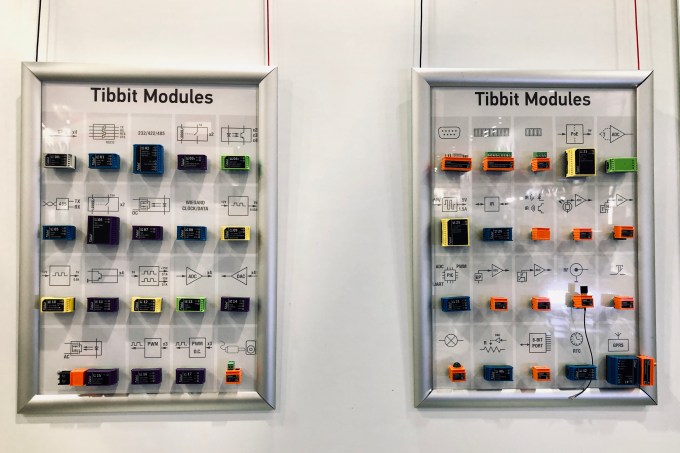At first glance, Tibbits look like building blocks, but each one is a module or a connector that makes it easier to build connected devices and systems. Tibbits were created by Tibbo Technology, a Taipei-based startup that exhibited at Computex this week (it showed off a humanoid robot built from various Tibbits).

Pre-programmed Tibbit modules from Tibbo
The heart of the Red Dot Award winning Tibbo Project System (the company used bright colors to make its modules stand out from other hardware) is the Tibbo Project PCB, which includes a CPU, memory and Ethernet port. Then you pick Tibbits, with pre-programmed functionality (such as RS232/422/485 modules, DAC and ADC devices, power regulators, temperature, humidity or pressure sensors or PWM generators), to plug into your PCB. Once done, you can place your project in one of Tibbo’s three enclosure kits (custom enclosures are also available).
Tibbo also offers an online configurator that lets you preview your device to see if it will work the way you want before you begin building, and its own programming languages (Tibbo BASIC and Tibbo C) and app development platform.
from TechCrunch https://tcrn.ch/2EKAcTM
via IFTTT
Comments
Post a Comment